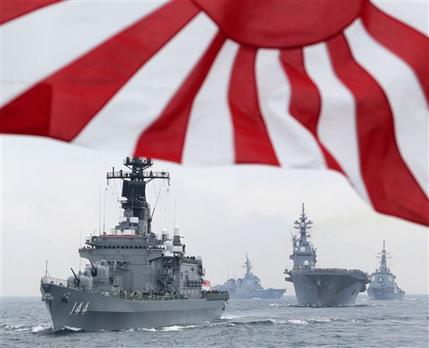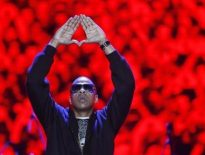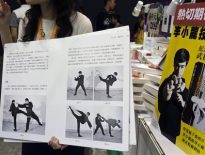TOKYO (AP) — With the economy perking up under his “Abenomics” policies, Japanese Prime Minister Shinzo Abe and his ruling party are seen rolling to a convincing victory in Sunday’s upper house election and regaining control of both houses of parliament for the first time in six years.

A win would be sweet redemption for Abe, who lost the upper house in 2007 during an earlier stint as prime minister, and make it easier for him to govern. He says his top priorities are regaining political stability and reviving the long-stagnant economy, the chief concern for voters. But a decisive victory could also embolden him on another front: the nationalistic agenda he had to abandon his first time in office.
“He may hear that internal voice saying, `This is the time for you to pursue your own goals,’ ” said Koichi Nakano, a political science professor at Sophia University in Tokyo.
Abe owes his rise to prime minister in part to right-wing supporters in his party who expect him to pursue their agenda. That may include laying the groundwork for revising Japan’s pacifist constitution, promoting traditional family values and making changes to the education system to instill more patriotism in students. Abe has called the current history curriculum “self-abusive” and too apologetic to Asian neighbors over Japan’s wartime actions.
He needs to tread carefully, however, because any step-up in nationalism would likely exacerbate already tense ties with nearby China and South Korea. He has already upset both since taking office in December by saying he wants to revise Japan’s landmark 1995 apology for its wartime aggression and questioning the extent to which Korean, Chinese and other Asian women were coerced to provide sex for Japanese soldiers.
A further deterioration in relations with China and South Korea would be worrisome for the United States as it seeks to engage more deeply in the Asia-Pacific region. To the extent that nationalism translates into a stronger military, though, some would welcome that as a counter to rising Chinese power.
“Being a nationalist means devoting your political effort to making your country stronger,” former U.S. National Security Council staffer Mike Green said recently at the Japan National Press Club. “That’s exactly what Japan needs, and that’s exactly what the U.S. needs from Japan.”
Under the campaign slogan “Recover Japan,” Abe’s Liberal Democratic Party vows to make Japan a muscular, gentle and proud country. It promises a strong economy, strategic diplomacy and unshakable national security under the Japan-U.S. alliance.
The message has found a measure of public receptivity amid growing tensions over Japan’s long-running maritime territorial disputes with China and South Korea and widespread distrust of an increasingly assertive China.
But the top concern for voters is the economy, which is showing signs of life thanks to aggressive monetary easing and public works spending, the first two “arrows” of Abe’s economic platform dubbed “Abenomics.”
Surveys show that after the economy and jobs, voters are most interested in social security, the sales tax hike and reconstruction after the March 2011 tsunami. The constitution, energy and trade attract the least interest.
More economic challenges lie ahead: Whether Abe can deliver on promised structural reforms to make Japan more competitive – the third arrow – and a decision this fall on whether to go ahead with a sales tax hike next April to fund social security as the population rapidly grays.
Abe can’t be seen taking his eye off the economy, but with potentially three years in power – unless he calls an early election – he may see that as enough time to make progress toward revising the constitution, a many-step process that requires two-thirds approval by both houses of parliament and then a national referendum.
Yohei Kono, a moderate former president of the Liberal Democratic Party who retired in 2009, said that Abe may turn more nationalist after a victory: “He is restraining his remarks and actions only because of the election.”
The ruling party’s coalition partner, the Buddhist-backed Komeito, opposes revising the pacifist elements of the constitution, but Abe could reach out to other sympathetic lawmakers. The newly formed Restoration Party is led by two nationalists including Osaka Mayor Toru Hashimoto, who stirred up a firestorm when he said that Japan’s wartime “comfort women” – which many say was sexual slavery – were a necessary evil.
“This is the first time constitutional revision is discussed as a realistic option,” Abe said earlier this month. “In that sense, I think we have achieved a first goal.”
Revising the constitution is a long-cherished goal for many Liberal Democrats, who consider the U.S.-drafted post-World War II constitution a victor’s imposition that hurts national pride. The party has repeatedly studied revision since the 1950s, but the idea has gained more traction in the party in recent years.
Much of the focus has been on relaxing the constitution’s war-renouncing Article 9, which bans the use of force in international disputes except for self-defense. Over the years, a broad interpretation of the article has gradually expanded the military’s role, now allowing it to serve in noncombat roles in U.N. peacekeeping operations overseas.
A revision could open the way for Japan to have full-fledged armed forces, under a prime minister serving as commander in chief, and make territorial protection a public duty.
The Liberal Democrat’s latest proposal on constitutional revision also calls for strengthening the authority of the state and making civil liberties such as freedom of speech subordinate to the public interest.
Polls show mixed support for revising the constitution. A survey of 3,088 people on July 5-7 by national broadcaster NHK showed 28 percent said revision is needed, 26 percent said it was unnecessary and 36 percent were undecided.
Short of constitutional revision, Abe may try to enact a special law to enable “collective self-defense.” It would allow Japan’s troops to fight alongside Tokyo’s allies – notably the U.S. troops who are obliged to defend Japan under a bilateral security pact – if either comes under attack.
Abe’s advisers, including ultra-conservative former diplomat Hisahiko Okazaki, have reportedly told him to prioritize national security and the Japan-U.S. alliance, and stay away from history issues to avoid upsetting Japan’s neighbors.
Sheila Smith, a senior fellow at the Council on Foreign Relations in Washington, D.C., said that given the concerns about tensions with neighbors, “not taking seriously the sensitivities on history issues, not being careful about the way in which statements and actions inflame popular reactions in other countries, doesn’t seem to be the best way forward.”
An early test may come in the weeks leading to the Aug. 15 anniversary of the end of World War II, a period when Abe and his nationalist colleagues in parliament will want to visit Tokyo’s Yasukuni war shrine.





